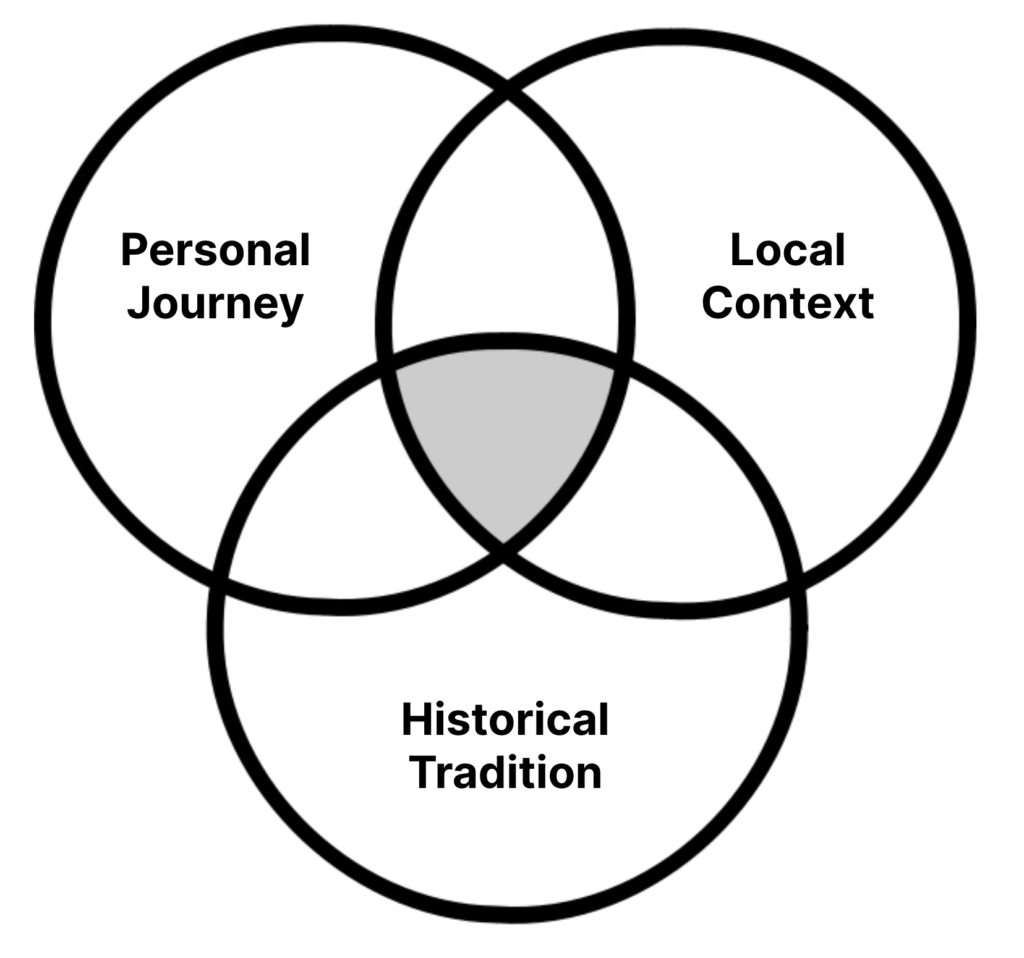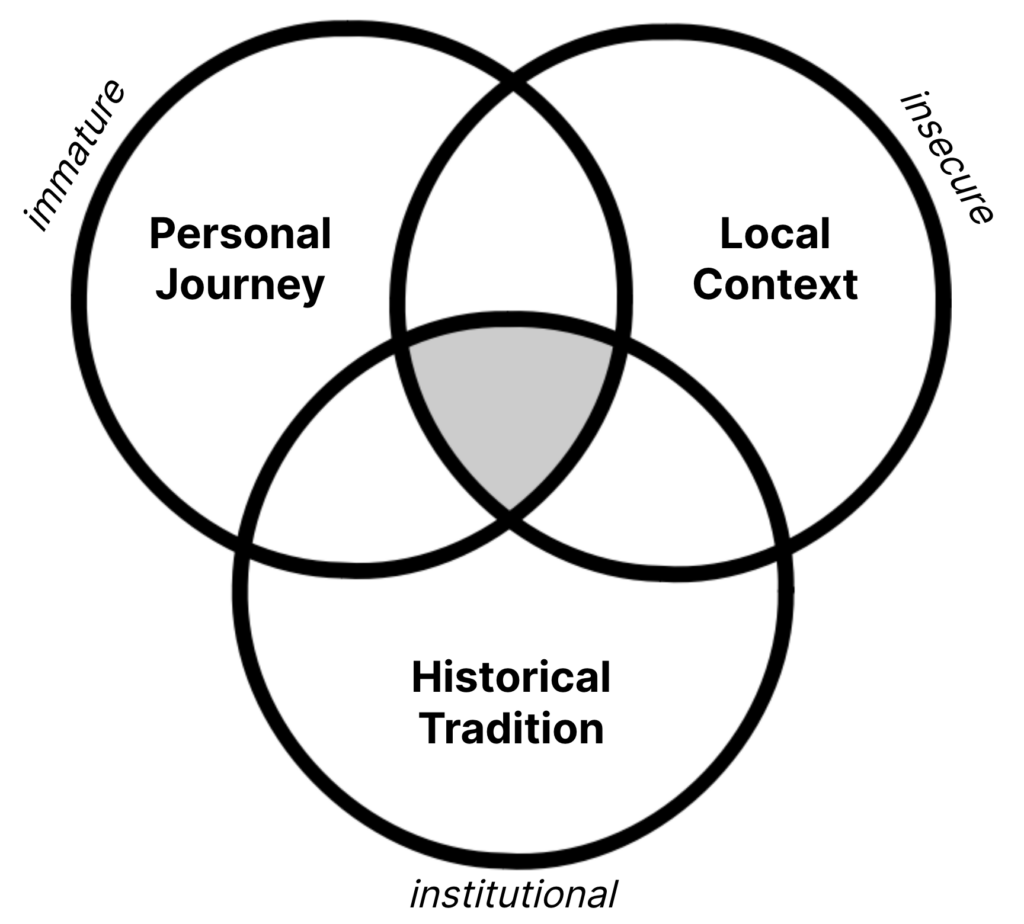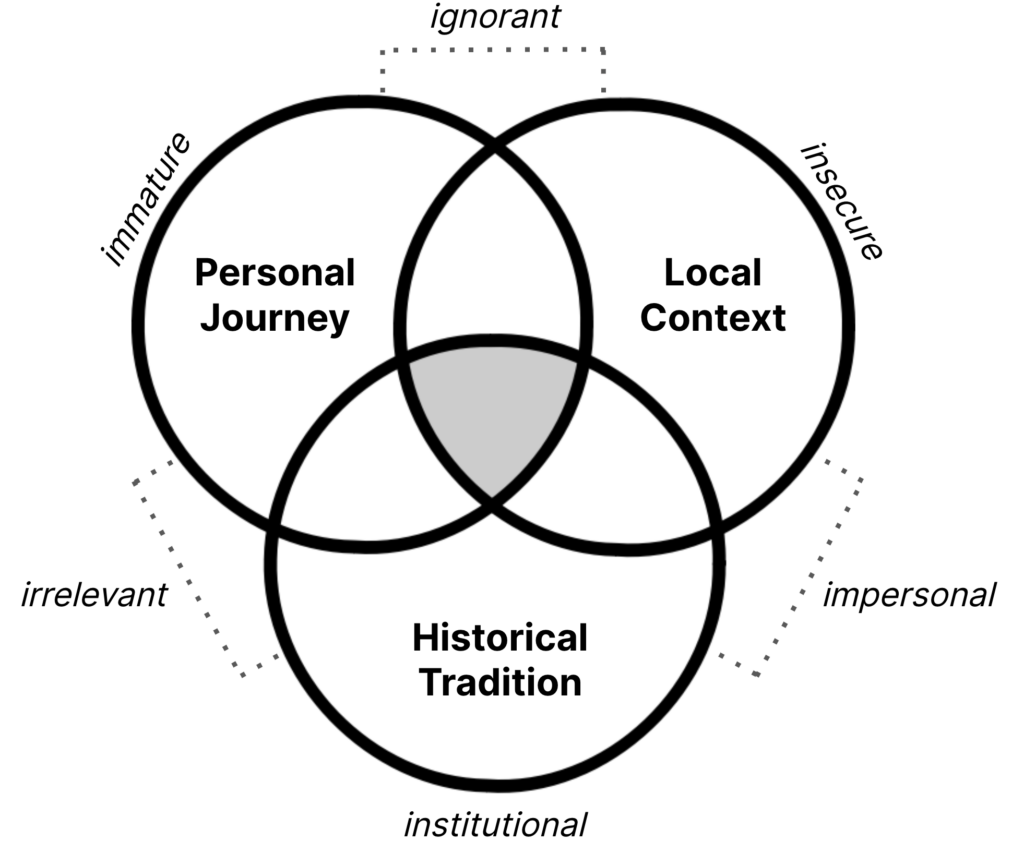
The Sweet Spot
When you work in ministry, it’s easy to get caught up in the weekly rhythms, planning, potential budget constraints, differing priorities or opinions within church leadership, and just the busyness that comes with trying to be present and available to volunteers or others in your church community. Not to mention the subtle, underlying pressure to keep your own soul nourished in order to lead well (and let’s face it, that’s vital but not always easy these days!).
Sometimes it’s tough to know how to step back and take a larger view of where you are in your own context and ministry life. What questions do you even ask to get more wisdom on the places where you feel tension, confusion, or just plain stuck? How do you step into that “sweet spot” in your ministry where your passion and personal convictions are aligning with the needs and realities of your church context and tradition?
Whether you’ve been in worship ministry for decades or still hoping to land your first job at a church, we’ve found there are some tools that always seem to result in more clarity and direction for whatever season you find yourself. We want to share one of those with you today! We’ve been using it a lot lately, especially with our graduates and those involved in job searches with us. But honestly, these are things anyone in leadership at a church or ministry should be thoughtful about.
There are three areas we believe all leaders need to consider, be aware of, and give real weight to in order to find that sweet spot. Prioritizing only one, or even two, will result in an imbalance that will not only be felt by the leader, but by the church as well. The sweet spot is found where all three of these overlap and are equally valued. Let’s define the three areas:

Everyone brings their own personal journey with God into their worship and ministry. If you’ve had a dramatic past or an extreme testimony of coming to faith, that’s absolutely going to impact the way you lead. If you’ve grown up in church and are used to thinking about things in a particular way, that, too, will form how you think about church and ministry. And of course what you’re currently walking through in your life with God will also color the lens you see through.
Another part of your personal journey knowing what’s in your heart. If you could do everything in your heart for your ministry, what would that look like? What are you passionate about imparting, instilling, and embodying as you lead? You’ve got to be able to name what those things are, because it’s your responsibility to be able to articulate it to leadership. Your personal journey is significant, and it should be!
But it’s not the only thing that’s significant. Your local context matters too! This refers to who and where you’re serving right now. What’s happening in your city and in your community? We have to consider what those we serve need from us as leaders right now, in this season. Otherwise we’re just moving through life and ministry with blinders on, which is extremely limiting.
Finally, we stand where we are today as part of a longer historical tradition. We are connected to a community of priests, a long line of saints who’ve gone before us. We don’t want any of our ministry to be disassociated from that and lose the rootedness that’s found in God’s history with His people.
So how does all of this intersect? What happens when we’re really only focusing on one of these?
If we ONLY lead out of our personal journey, we’ll be immature leaders because it won’t be connected to anything deeper or culturally relevant.
If we ONLY lead out of our local context, we’ll be insecure leaders because it won’t be connected to anything personal or that we’re passionate about.
If we ONLY lead out of historical tradition, we’ll be institutional leaders because it will just be doing what’s always been done, not integrated with any passion or current reality.

What if we have two of these things going for us, we’re just missing the third?
If we ONLY lead from our personal journey and local context – we’re in danger of being an ignorant leader. We’re missing the broader panoramic perspective!
If we ONLY lead from our local context and historical tradition – that’s just impersonal! It’s not deeply connected to our life or journey with God.
If we ONLY lead from our personal journey and historical perspective, but are completely oblivious to what the community actually needs – that’s an irrelevant leader.

Being aware of ALL THREE of these areas and how they work together, and ebb and flow from season to season – that’s the sweet spot where both you and your church will find the most growth and fulfillment as you walk together. Of course it takes being wise, patient, and humble in the process. But thoughtfully pursuing balanced leadership that values all three of these areas will ultimately lead to leadership that is inspiring, integrated, and impactful.